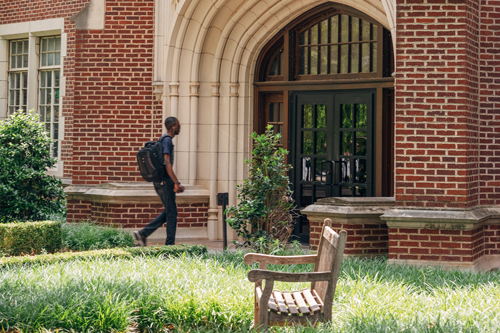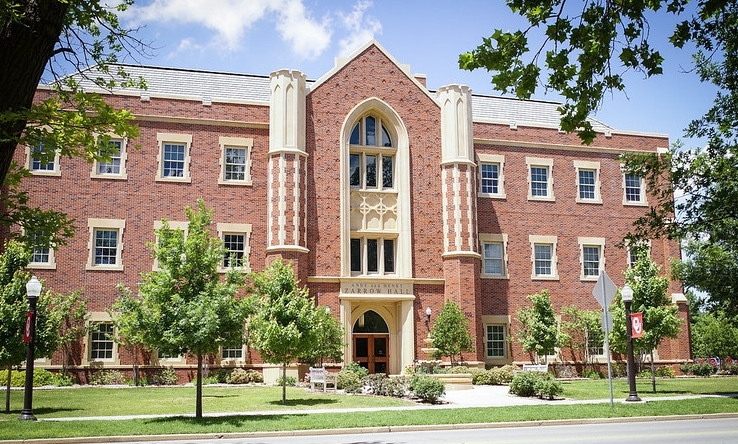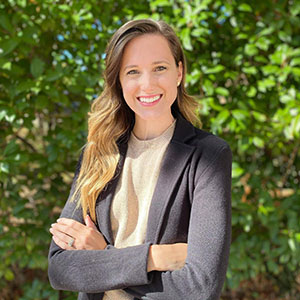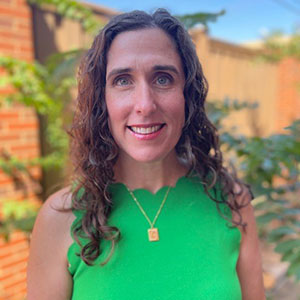Welcome to Field Education at the Anne & Henry Zarrow School of Social Work.
Whether you’re a prospective social work student, a current student at the University of Oklahoma, or a potential Field Instructor, we are excited to support your journey into applied social work practice.
With Field Education offices serving our Online MSW Program and both the Norman and Tulsa campuses, we coordinate practicum placements across the state, nation, and globe. These placements provide students with structured learning experiences that support ethical, responsive engagement with individuals, families, groups, and communities.
Our partner sites are carefully selected to ensure students receive qualified supervision, access to essential resources, and meaningful opportunities to grow as competent and ethical social work professionals. Through these placements, students develop the practical skills needed to work in varied settings and respond to the multidimensional needs of clients.

The practicum process is designed to ensure a mutually beneficial and professionally appropriate learning environment for both the student and the agency. Field Coordinators collaborate with students, agency sites, Field Instructors, and Faculty Liaisons to support a quality educational experience aligned with CSWE competencies.
Students are provided with an orientation to the practicum process, participate in placement planning, and interview with potential agency partners. Placement decisions consider each student’s educational preparation, learning goals, and logistical needs. Once approved, students are placed with an agency that can offer opportunities for professional growth within the scope of social work practice.
At each site, a degreed social worker (BASW or MSW) serves as the designated Field Instructor, providing regular supervision, instruction, and evaluation in accordance with field education standards. Field Instructors are not obligated to accept students and receive no financial compensation for their service in this educational role.
Where would you like to grow professionally? Let’s begin by exploring your areas of interest.
Practicum placements are available in a wide range of practice settings where students engage in ethical, client-centered social work across varied populations and service needs.
Policies
Getting Started
BASW
Foundation Year
Foundation Year - Field Unit
Concentration Year
Training Handouts
Policies

The Anne & Henry Zarrow School of Social Work places students only with agencies officially affiliated with the School through a formal agreement process. These partnerships are designed to offer students high-quality learning experiences rooted in ethical, client-centered, and practice-based education.
To become an affiliated practicum site:
1. An agency representative must complete the Practicum Site Application.
2. Once submitted, the application will be reviewed by Field Education staff.
3. If approved, the University will initiate an official affiliation agreement.
4. Upon completion of the agreement, the agency will be added to the Intern Placement Tracking (IPT) system, which supports placement coordination.
Affiliated sites play a critical role in shaping future social work professionals by offering supervised, standards-aligned learning experiences across a range of service settings.
Field Instructors play a vital role in preparing social work students for professional, ethical, and effective practice. Practicum instruction is guided by national accreditation standards and agency supervision expectations.
To serve as a Field Instructor with the Anne & Henry Zarrow School of Social Work, individuals must meet the following qualifications:
Interested professionals must complete the Field Instructor Application. After review and approval, Field Instructors will gain access to the Intern Placement Tracking (IPT) system, which facilitates placement tracking and student supervision.
To get started, complete the Field Instructor Application.

Practicum Preceptors may be assigned to support student learning during field placements. The scope of their involvement in teaching and supervision is determined collaboratively by the designated Field Instructor and the faculty liaison. When a Preceptor participates in a student’s practicum experience, they should be included in developing the student’s learning plan and in evaluating their performance.
Preceptors must complete the Preceptor Application form, to access the internship database.
A Field Education Coordinator is the designated faculty member responsible for overseeing the Practicum Program on each campus (Norman, Tulsa or Online).
The Coordinator ensures that all field placements meet the School’s academic standards and accreditation requirements.
All practicum placements must be reviewed and approved by the Field Education Coordinator assigned to the student’s home campus.
A Faculty Liaison is a faculty representative assigned to oversee the academic integrity and progress of a student’s field education experience. The Liaison:
The Faculty Liaison plays a key role in maintaining alignment between the practicum experience and the School’s academic and accreditation standards.
A Field Instructor is a qualified social work professional who provides practicum supervision and educational guidance for students completing their practicum placement. Field Instructors are typically employed by the practicum site and work in coordination with the School’s Field Education Program.
Field Instructors play a key role in evaluating student performance and provide input that informs the student’s final grade, which is issued by the assigned Faculty Liaison.
A Field Preceptor is a staff member at the practicum site who provides day-to-day guidance and task-related support to the student during the placement. While Preceptors contribute to the student’s learning experience, they do not serve as the official Field Instructor of record.
In some settings, site leadership may assign overall supervisory responsibility to one MSW-qualified Field Instructor, who may then delegate aspects of daily supervision to another qualified staff member, including MSW professionals. However, the designated Field Instructor retains full responsibility for oversight, evaluation, and coordination with the Faculty Liaison.
A Practicum Agency or Practicum Site is an approved organization where students complete their field education requirements under structured supervision. All practicum sites must have a formal affiliation agreement on file with the University of Oklahoma School of Social Work (OUSSW) prior to student placement.
Approved sites may include, but are not limited to:
Sites vary in size and scope and may operate as public entities, private non-profit organizations, or healthcare systems. Each site must be capable of providing the supervision, resources, and educational opportunities necessary to support student learning and meet program and accreditation standards.
The Practicum Program offers several scheduling formats to align with academic planning and site availability. Each format must be approved by the Field Education Coordinator and must comply with program standards and accreditation requirements.
Norman and Tulsa Programs:
Online Program:
MSW Program
The Master of Social Work (MSW) program requires a total of 900 clock hours of practicum experience. Students complete 400 hours during the Foundation Year and 500 hours during the Concentration Year.
Students admitted with Advanced Standing have already met the foundational practicum requirements through their accredited undergraduate social work education. These students complete 500 hours of practicum during their concentration year.
BASW Program
Undergraduate students in the Bachelor of Social Work (BASW) program complete 400 clock hours of practicum experience.
Practicum hours are distributed across two required courses—SWK 4315 and SWK 4325—typically taken in the final year. Students generally spend 13-14 hours per week at their placement site, earning at least 200 hours per semester. Enrollment in corresponding classroom courses is required during practicum participation to ensure integrated learning and supervision.
The practicum placement process may vary by campus. Each student will receive detailed information about placement procedures and available sites during a Field Planning Orientation Meeting, conducted by the campus-based Field Education Coordinator. This orientation ensures students are prepared to make informed decisions about placement opportunities that support their professional learning and development.
An Employment-Based Practicum Placement (EBPP) allows a student to fulfill practicum requirements at their current place of employment, provided specific criteria are met to ensure the educational integrity of the experience.
Criteria for an EBPP
What an EBPP Is Not:
Key Considerations for EBPP Requests:
No. Previous or current employment cannot be counted toward required practicum hours unless it is part of an approved Employment-Based Practicum Placement (EBPP). Practicum credit is granted only for structured, supervised learning experiences that meet academic and professional standards established by the Practicum Program and CSWE guidelines.
A limited number of scholarships may be available to students engaged in practicum placements. These scholarships are awarded through a competitive selection process.
Students are encouraged to consider the availability of scholarship-supported placements as one of several factors when exploring potential practicum sites. The Practicum Program does not guarantee scholarships or paid placements and is not involved in the funding decisions made by individual agencies or outside organizations.
Yes, students may request to complete a practicum placement outside the state, but such placements are subject to approval by the Field Education Coordinator of that program and must meet all educational and supervision standards required by the School and CSWE accreditation.
Out-of-state placements must:
Students are advised to begin the approval process early and to work closely with their Field Education Coordinator to ensure compliance and coordination with academic timelines.
Yes, most practicum sites maintain professional expectations regarding dress and appearance, which may vary depending on the setting and type of services provided. Students are expected to comply with the site’s established guidelines and represent the profession with professionalism in both conduct and attire.
Students will receive dress code expectations as part of their orientation to the placement site. If clarification is needed, they should consult directly with their Field Instructor or Field Education Coordinator.
Yes. All students participating in a field practicum are required to carry malpractice student liability insurance with minimum coverage of $1,000,000 per incident / $3,000,000 aggregate. Proof of insurance must be submitted to both the Field Education Coordinator and the practicum site before the start of the placement.
Students are responsible for purchasing their own coverage. Affordable student rates are available through professional organizations and independent insurance providers.
Additional guidance and campus-specific instructions will be provided during Practicum Planning, and relevant forms and resources are available in the Practicum Planning Canvas course.
Yes. MSW students must be assigned to a Field Instructor who holds a Master of Social Work (MSW) degree.
BASW students may be supervised by a Field Instructor with either a BASW or an MSW, depending on site availability and educational alignment.
All students are required to meet with their Field Instructor for a minimum of one hour of dedicated supervision each week. While it is preferred that Field Instructors hold professional licensure, it is not a formal requirement for assignment.
Please refer to the Field Education Manual (PDF) and Online MSW Program Handbook (PDF) for information.
Students are expected to remain in practicum for the full duration of the academic term, regardless of when required hours are completed. Any deviation from the established practicum calendar must be approved in advance by the assigned Faculty Liaison and agreed upon by the Field Instructor.
If a student needs to propose a significant adjustment to the practicum schedule, they must complete a Request for Modified Practicum form.
Final approval of such requests rests with the Field Education Coordinator.
Early completion of hours does not automatically release a student from ongoing educational responsibilities associated with the placement.
Some practicum sites may require students to obtain a parking pass, depending on the agency’s location and parking policies. Students are responsible for any related costs.
The School does not provide funding for parking expenses. Students are encouraged to confirm parking requirements with their practicum site during the placement planning process.
ONLINE CAMPUS

Email: tadamson@ou.edu

Email: r.mcbride@ou.edu
ON-CAMPUS

Email: carriejank@ou.edu